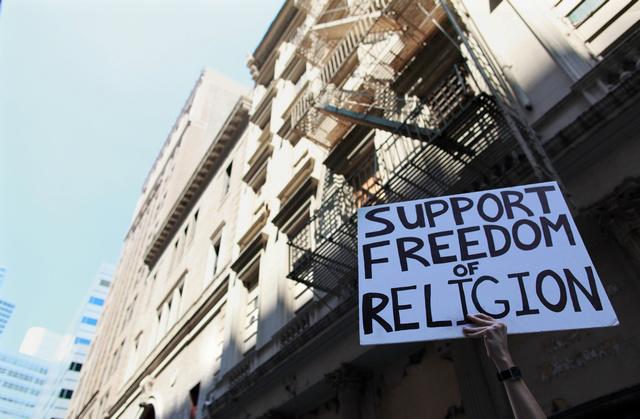By Erin Weist
The state of Mississippi is preparing to enact a notable bill passed earlier this year by the state legislature. This “Religious Liberty Bill,” as it is described, was written as a result of certain events throughout the United States. Those events are described in the language of this bill as follows:
“After the legalization of same-sex marriage, religious adoption and foster care agencies in Massachusetts, Illinois and the District of Columbia were forced to close because of their sincerely held religious beliefs about marriage. Further, a religious educational institution in Massachusetts was threatened by the government with loss of its accreditation because of its sincerely held religious beliefs about marriage, and small family-owned wedding businesses in Oregon, Washington, Iowa, New York and elsewhere have endured fines or financial penalties or have been forced to close because they operated consistent with their sincerely held religious beliefs about marriage; Citizens of the this state hold a wide range of reasonable views on the issue of same-sex marriage, and maintaining the state’s commitment to religious freedom when faced with these good-faith differences of opinion is vital.” (Miss. House Bill 1523)
The outcry against the passing of this bill 3 months ago was swift and brutal. It was described as discriminatory, illegal, bigoted, and anti-LGBT, rather than seeing this as any sort of compromise between two dissenting opinions. The Obergerfell v. Hodges ruling in the Supreme Court created, as was expected, no legal recourse for those in religious disagreement regarding same-sex marriage. Mississippi’s religious liberty law does not, as was falsely decried in the media, allow for discrimination because of sexual orientation. It does, however, provide alternatives for those uncomfortable with taking part in a same-sex marriage. The former is a personal lifestyle choice, the latter relates to freedom of association, as is generally accepted under the First Amendment: “The government may also, generally, not compel individuals to express themselves, hold certain beliefs, or belong to particular associations or groups.” The examples in the bill (wedding businesses, educational institutions, etc.) certainly seem to fit that description of compelling individuals to express themselves against their personal beliefs.
So it is not surprising that California last month passed SB 1146 (read more here and here) removing the right of religious institutions to make housing, admission, or faculty decisions based on principles of faith. There are currently anti-discrimination laws in place with exemptions for religious institutions where the tenets of their faith are in contradiction to these ideas. This bill removes those exemptions, saying a school may not be able to determine housing as it best sees fit for a transgender student, or admission for a student unwilling to abide by the principles of the faith, or even the ability to choose faculty best suited for their educational purposes. In short, a faith-based school would cease to be able to function based on their religious principles. This dangerous idea affects more than religious liberty or gender identity. It is an alarming shadow of Thought Police and removal of our sacred First Amendment freedoms.
Clearly, there is a divide here, one that favors the voice of LGBT advocates and silences religious advocates. I personally support the right of consenting adults to live according to their conscience, but I don’t believe that changes the definition of marriage. I believe all people have a right to pursue happiness, but not at the cost of legally obliterating another’s right to pursue happiness and live according to their faith. We must come to a compromise, a sincere give-and-take from both viewpoints, before this culture war produces any more casualties.

